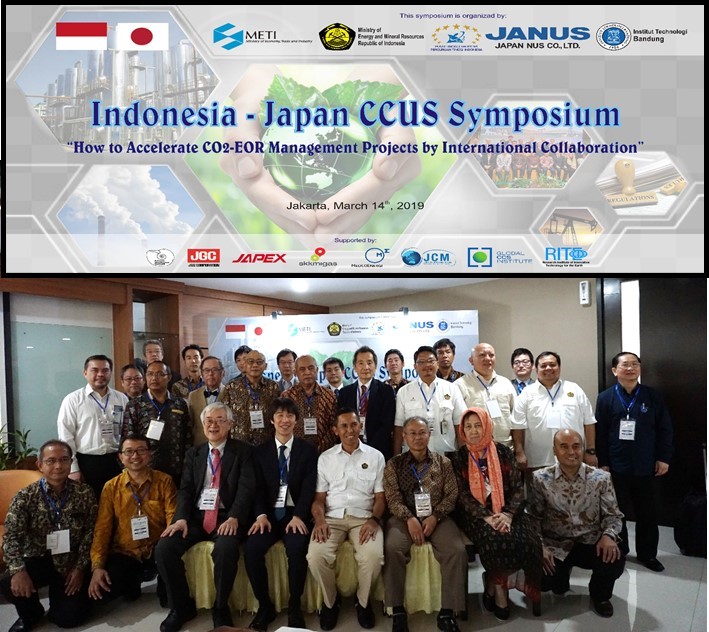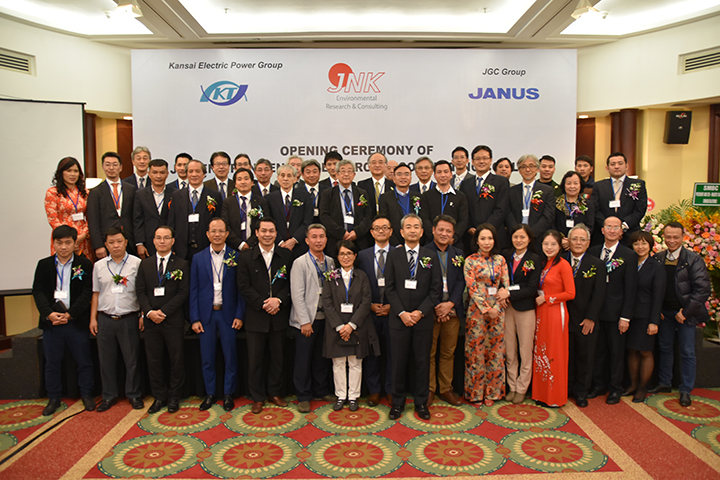| 2024.09 | Service | Support for Developing Guidelines for Harmonizing Marine Litter Monitoring Methods Using Remote Sensing Technology The Ministry of the Environment (MOE), Japan, released the Guidelines for Harmonizing Marine Litter Monitoring Methods Using Remote Sensing Technology on July 19, 2024. These guidelines were developed based on the results of the “Comprehensive Study on the Current Status and Efficient Collection of Marine Litter”, a contract project commissioned to our company by the MOE in 2022FY- 2023FY. Amid growing international interest in the issue of marine litter, including plastics and its countermeasures, it is crucial to understand the actual state of marine litter, which is the basis for these countermeasures and evaluations. JANUS has been engaged in understanding the actual state of marine litter even before the enactment of national marine debris legislation, and we will continue to contribute to solving the problem of marine litter, including plastics.
MOE website | ||||||||||||||||||||||||||||||||||||
|---|---|---|---|---|---|---|---|---|---|---|---|---|---|---|---|---|---|---|---|---|---|---|---|---|---|---|---|---|---|---|---|---|---|---|---|---|---|---|
| 2021.07 | Service | Initiatives Introduction CCUS(Carbon dioxide Capture, Utilization and Storage) “Asia CCUS Network” has launched Mr. Kajiyama, Minister of Economy, Trade and Industry of Japan announced the launch of the ”Asia CCUS Network (ACN)” in the 1st Asia CCUS Network Forum held on June 22nd and 23rd. ACN is an international industry-academia-government platform aiming at knowledge sharing and improvement of the business environment for utilization of carbon capture, utilization, and storage (CCUS) throughout the Asia region. The secretariat of ACN is Economic Research Institute for ASEAN and East Asia (ERIA). 13 countries (all ASEAN member states, Australia, USA and Japan) and more than 100 companies, research institutions, and international organizations, including JGC Holdings and JAPAN NUS (JANUS) from JGC group, have so far expressed their intention to participate in the network. Ministers of each country made a welcome speech for ACN in the forum. In their speech, development of CCUS technologies was highly expected as a solution for decarbonization because most of Southeast Asian countries need to continue depending on fossil fuels. In the session of “Japan CCUS showcase” on the second day, Mr. Kudo, general manager of JANUS, made a presentation regarding Gundih CCS project. Potential maps in ASEAN Region JANUS made some proposals and advices to METI before the launch of ACN. As a first step of their program, JANUS surveyed three countries (Viet Nam, Malaysia, Indonesia) and visualized the results by creating the Asia CCUS Potential Maps. The maps provide information about major CO2 emissions sources, possible storage areas as well as gas pipelines to perform preliminary evaluation of CCUS feasibility. The maps are available on the ACN website. JANUS would like to propose further development and expansion of the CCUS potential maps and contribute to the progress toward CCUS project deployment in the ASEAN region including Gundih CCS project by JGC group. Carbon dioxide capture and storage (CCS) | ||||||||||||||||||||||||||||||||||||
| 2020.09 | Service | Aomori Office moved on September 1st, 2020. The new address of Aomori Office is as follows: 353-1 Aza Nozuki, Obuchi, Rokkasho-mura, | ||||||||||||||||||||||||||||||||||||
| 2020.05 | Service | Adoption of the City-to-City Collaboration Toward Zero-Carbon Society Projects in Indonesia, Maldives, and Malaysia JANUS, Toyama City, and private companies in Toyama City jointly proposed the projects below and were selected by the Japan Ministry of the Environment (MOE) to conduct the “City-to-City Collaboration Toward Zero-Carbon Society Projects in 2020.”
Toyama City’s policy planning and decision making revolves around sustainable city management based on compact urban development centered on public transportation—resulting in their renown environmentally advanced city status, as an “environmental future city” and “SDGs future city.” In addition, to fulfill SDG goal 17, to strengthen and revitalize global partnerships, the City is collaborating with overseas cities to promote and disseminate environmental technologies and knowledge that housed within the City and companies with Toyama City. For this project, JANUS will conduct studies on the applicability of decarbonization technology in five cities within three countries—Indonesia, Maldives, and Malaysia—in cooperation with Toyama City and Toyama companies with excellent decarbonization technology. Indonesia:With the objective of reducing greenhouse gas emissions and developing a JCM Model Project in the province of Bali Province and Semarang City in Central Java, JANUS will examine fuel conversion businesses from diesel to natural gas and the expansion of renewable energy with a focus on solar power generation. Maldives:With the goal of converting the Hulhumale area in Greater Male’, to become a “smart” and “compact” environment-friendly city, JANUS will examine low carbon public transport development projects, gas conversion projects for diesel power generation facilities, renewable energy/energy saving diffusion projects, and biogas power generation using organic disposal materials. Malaysia:JANUS will examine low-carbon public transportation utilizing biofuels and diffusion of renewable energy centered on small hydroelectric power generation, aiming to achieve compact city development centered on public transportation in Iskandar, Johor, and Kota Kinabalu, Sabah, Malaysia. JANUS will also consider using bio-gas liquefaction technology that JGC Global Co., Ltd. is looking to develop as a low-carbon public transportation option utilizing biofuels. In developing countries with advancing economies, it is apparent that increased urban population is leading to urban problems such as increase in traffic congestion, greenhouse gas emissions, and air pollution. In order to solve these problems, it is necessary to deploy Japan’s excellent decarbonization/low-carbon technology and policy knowledge and know-how as a total package. In collaboration with Toyama City and companies in Toyama City, and utilizing the JGC Group’s technical capabilities, JANUS will accelerate activities toward developing overseas projects using this survey as a springboard and present valuable solutions for global environmental problems. | ||||||||||||||||||||||||||||||||||||
| 2019.06 | Service | Signing of Memorandum of Understanding (MoU) between Institut Teknologi Bandung (ITB) and JAPAN NUS Co., Ltd. (JANUS)The Institut Teknologi Bandung (ITB) and JAPAN NUS Co., Ltd. (JANUS) agreed to build a partnership by signing a memorandum of understanding on the “Realization of Regional CO2 management in Indonesia.” ITB, a state-owned university, leads the Center of Excellence (CoE) of CCS-CCUS in collaboration with the Directorate General of Oil and Gas (Ditjen Migas), Ministry of Energy and Mineral Resources Indonesia, and other institutes, to undertake projects in Indonesia, associated with Carbon Capture and Storage (CCS) and Carbon Capture, Utilization and Storage (CCUS) including Carbon Dioxide Enhanced Oil Recovery (CO2-EOR). JANUS is conducting research to promote the concept of regional CO2 management based on hub and clustering CO2-EOR in Indonesia. A successful implementation of the concept will make CCUS businesses economically feasible by connecting several CO2 sources and sinks such as oil and gas fields via a trunk a CO2 trunk pipeline. Based on the MoU, ITB and JANUS will closely work together to deploy regional CO2 management in Indonesia. As the very first partnered project under this MoU, ITB and JANUS organized the Indonesia-Japan CCUS Symposium on March 14, 2019 at the Ditjen Migas auditorium, in collaboration with Fukada Geological Institute and JGC Corporation, supported by the Ministry of Energy, Mineral Resources of Indonesia and Ministry of Economy, Trade and Industry of Japan and other institutes from both countries. The symposium attracted 50 participants from the government, industries, and academics in both countries, and the two countries reinforced continued partnership towards the deployment of regional CO2 management in Indonesia. JANUS will contribute to this endeavor based on its technical experience and expertise and plan to strengthen its environmental consulting business.
| ||||||||||||||||||||||||||||||||||||
| 2019.02 | Service | Notice of establishment of a new company in Vietnam JAPAN NUS Co., Ltd. (JANUS) is pleased to announce that JANUS and KANSO Co., Ltd. (KANSO) established a joint venture company called JNK Environmental Research & Consulting Co., Ltd. (Location: Hanoi City) in Socialist Republic of Vietnam where continuous economic growth is expected. Recently, Vietnam is attracting much attention as a promising market where Japanese companies are eager to expand their businesses since it has been maintaining high economic growth by transition to market economy and integration into global economy. This trend is expected to continue and Vietnam is most likely to maintain a high economic growth rate in the future. On the other hand, it can be observed that rapid industrialization and urbanization accompanying economic growth are the causes of serious environmental problems, such as water pollution of rivers and coastal areas because of water effluent from industries and domestic sewage; or air pollution because of emissions from power plants and motorcycles. Taking into account the reality of such market environment, JANUS will take advantage of its knowledge and experiences as environmental and energy consultancy company cultivated so far in Japan and Hanoi representative office and integrate it with KANSO’s strength, i.e., experiences and skills in the field of environmental investigation and analysis. By doing so, JNK aims to develop business in environmental consulting, environmental research / analysis and merchandise trading to contribute to sustainable development in Vietnam.
| ||||||||||||||||||||||||||||||||||||
| 2017.07 | Service | JANUS launched a vegetable washing powder “Go Clean”.JANUS launched a vegetable washing powder “Go Clean”. | ||||||||||||||||||||||||||||||||||||





